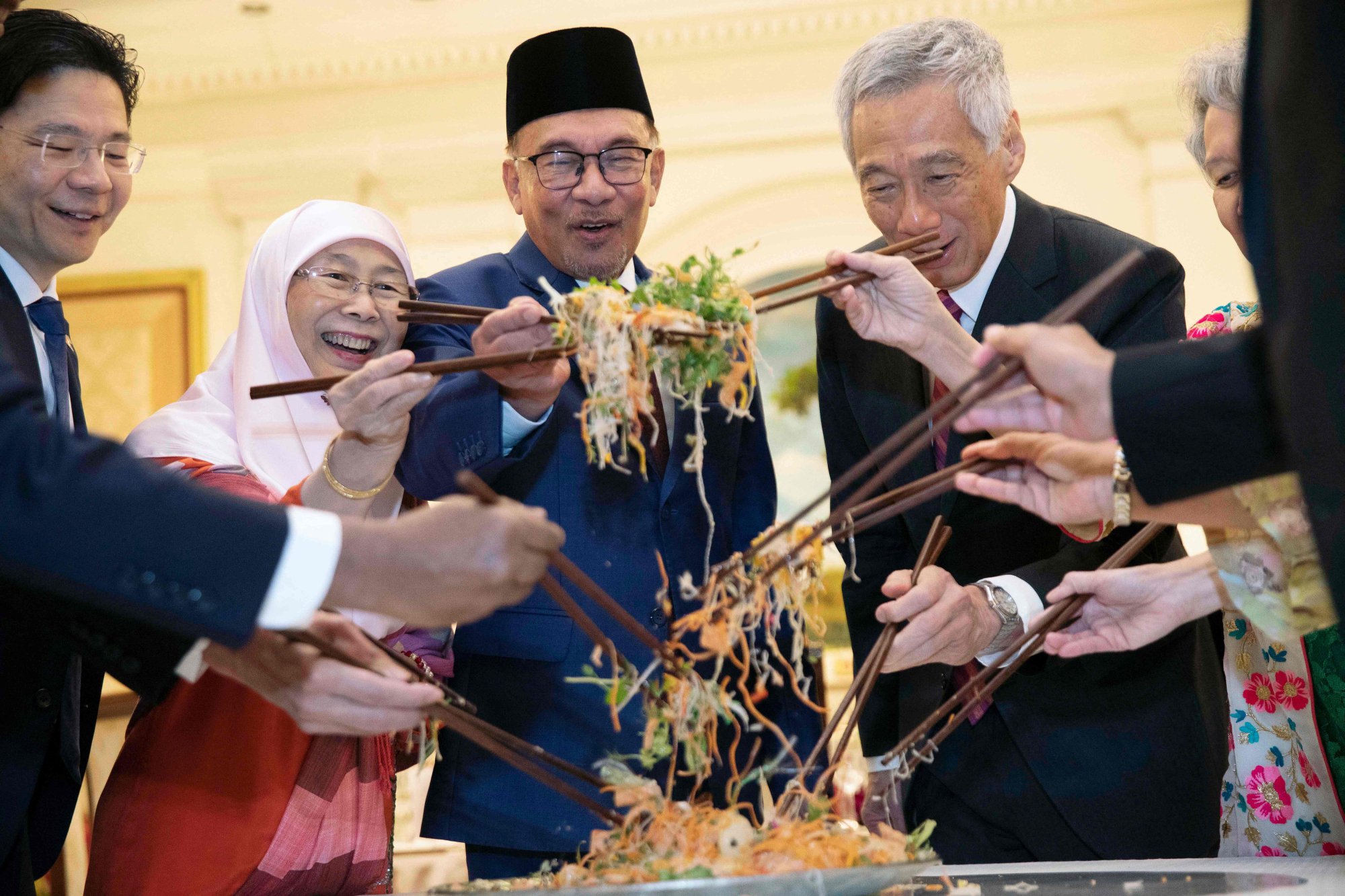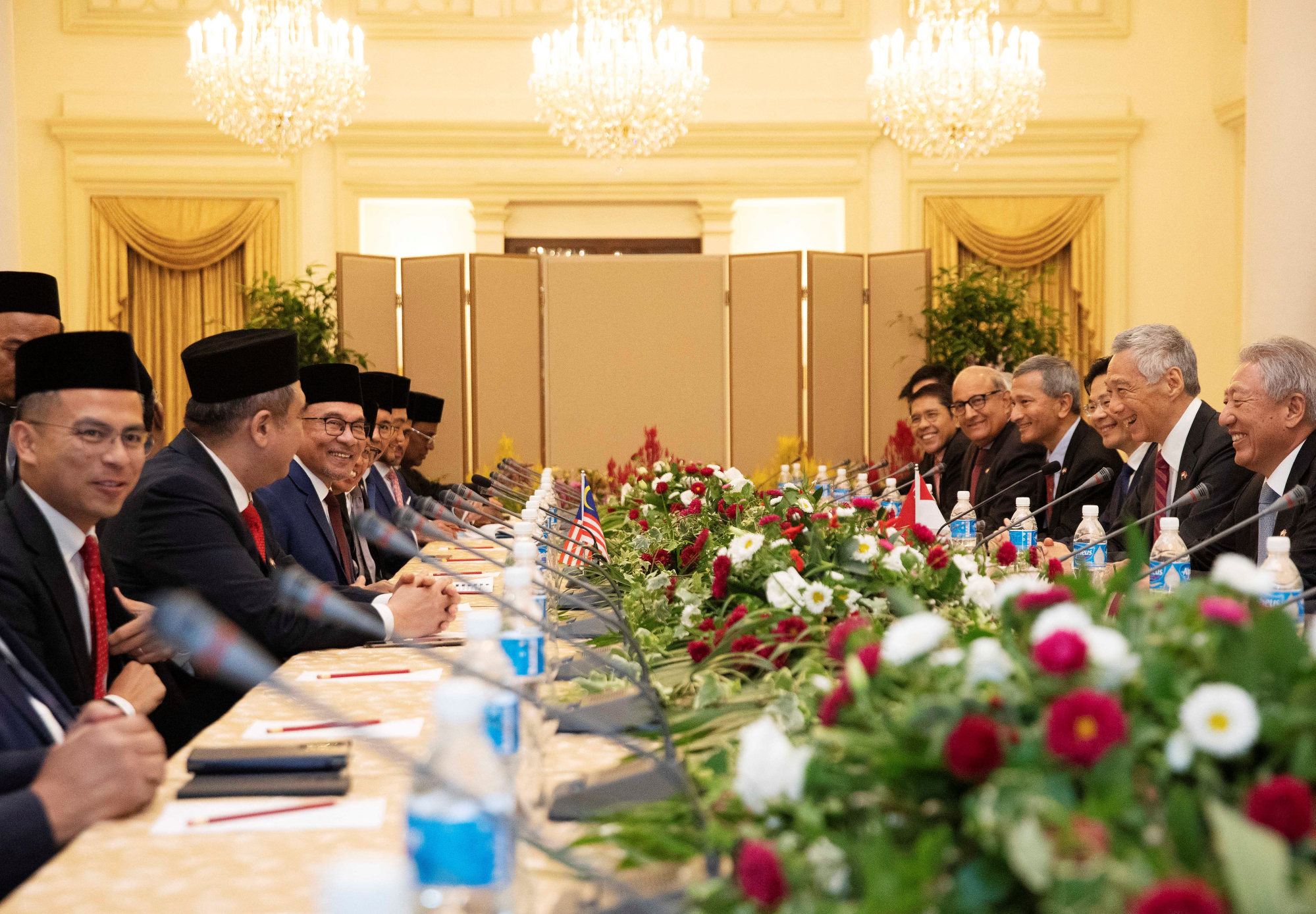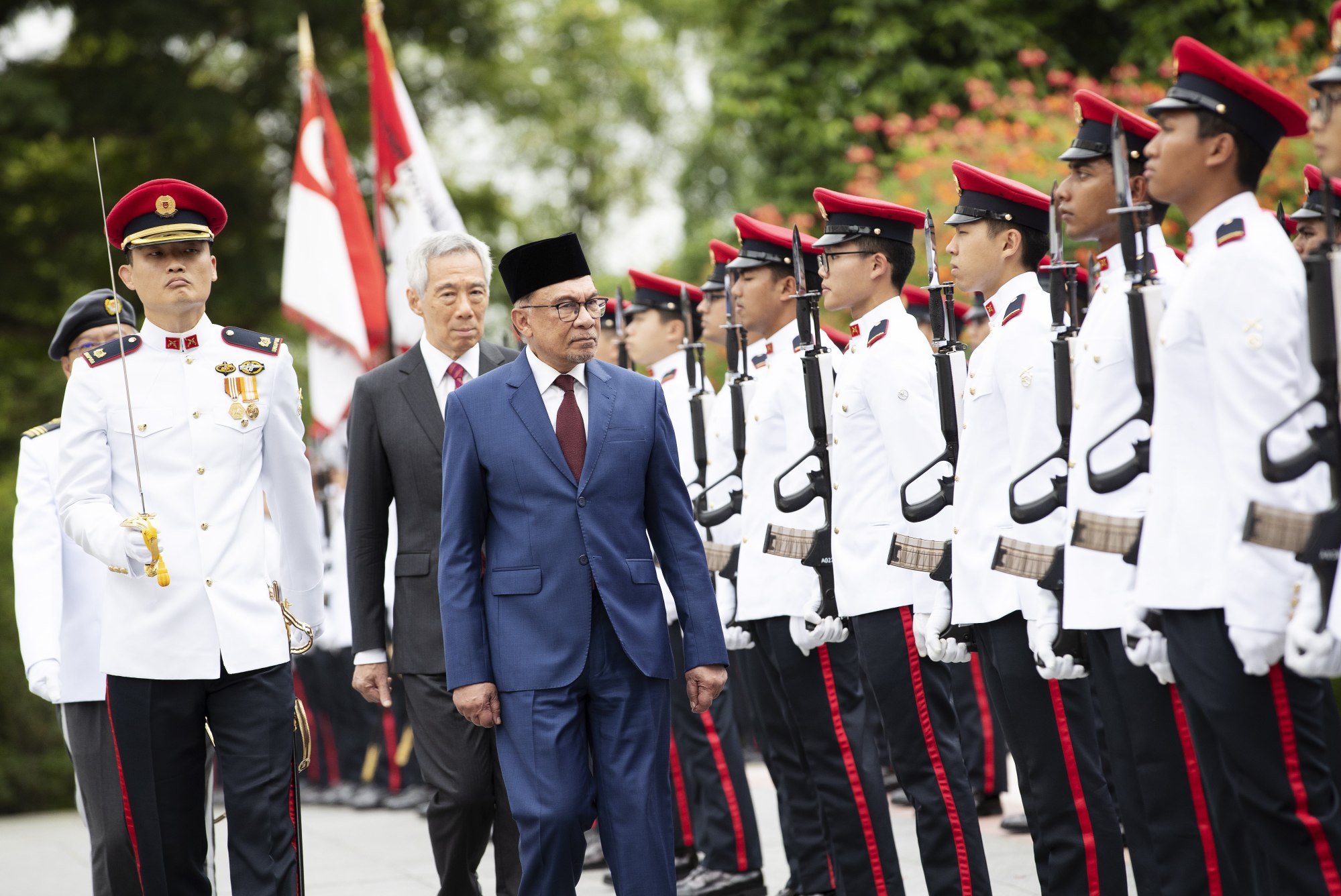
Malaysia hails close ties with Singapore as deals struck over green, digital economy
- Anwar met Singapore Prime Minister Lee Hsien Loong and President Halimah Yacob in first official visit to city state
- Malaysian leader says both sides need to explore new areas of cooperation while tackling outstanding issues
Bilateral ties have been relatively stable in recent years despite Malaysia’s turbulent politics, though some differences remain on issues including the price of Malaysian water under a 1961 agreement. The status of the rocky outcrop of Pedra Branca, which the world court ruled belongs to Singapore following a lengthy legal dispute, has also been a point of contention.

Singapore’s foreign affairs ministry said Anwar and Lee both “welcomed the reopening of borders and increasing connectivity between the two countries”.
“They agreed on the importance of working together to deepen ties in mutually beneficial areas, as well as address bilateral issues in a constructive manner,” it added in a statement.
Singapore’s national broadcaster CNA quoted Anwar as saying that “more contentious outstanding issues” were also discussed.
“No issues should be left unresolved. We should try and do our utmost to enhance this [relationship] and work together for the benefit of both countries,” he said.
The two Southeast Asian neighbours signed three agreements in the fields of cybersecurity, green economy and digital economy. They would facilitate the exchange of expertise in areas including data protection and cross-border data flows, as well as tackling cyber threats, Singapore media reported.
In a toast speech during an official lunch, Anwar said both sides needed to explore new areas of cooperation as they tackled outstanding issues. He cited food security as one such area, adding that he hoped Singapore would “use Malaysia as the heartland to produce for the benefit of both countries”.
“My cabinet team is very clear … not only [do] we want to continue the relations, we [also] want both Singaporeans and Malaysians to understand we are two great countries and two great neighbours that we can do so much more for the benefit of our people,” he said.

In a Facebook post, Halimah said her meeting with Anwar took stock of the wide-ranging cooperation between both sides and discussed collaboration in other emerging areas. Singapore was Malaysia’s largest foreign investor, she pointed out.
“Despite the challenging economic times ahead, PM Anwar and I agreed that our two countries should work even more closely together and maintain regular channels of communication among our leaders and people,” wrote Halimah, who is set to visit Malaysia in March.
Anwar was accompanied by his cabinet members, including foreign minister Zambry Kadir, transport chief Anthony Loke and international trade and industry minister Tengku Zafrul Aziz.

Diplomatic analysts said a core objective of Monday’s visit was likely the establishment of closer personal rapport between Anwar’s delegation and their Singaporean counterparts.
Chong Ja Ian, associate professor of political science at the National University of Singapore (NUS), said the meetings would help establish goodwill and familiarity between both countries to lay the groundwork for future collaboration.
Singapore-Malaysia ties have been “consistent” in that both sides have sought to deepen relations but recurrent issues – including the reviewing of the Pedra Branca ruling and negotiating the price of water Singapore buys – have cropped up, according to Nawaljeet Singh Rayar, an associate research fellow with the S. Rajaratnam School of International Studies in Singapore.

Ahead of the visit, the Malaysian government last week said it respected a 2008 International Court of Justice (ICJ) ruling indicating that Singapore had sovereignty over Pedra Branca.
The issue has for years been a political football in the country, with some politicians urging sitting governments to take legal action to revise the ICJ’s judgment.
Former prime minister Najib Razak had sought such a revision in 2017, but the application was withdrawn by Mahathir Mohamad in 2018 after Najib’s election defeat.
Current Malaysian attorney general Idrus Harun has said the government would abide by the 2008 ruling, but believed the 2018 action by the Mahathir administration was “improper”. The attorney general’s office would study if a “tort of misfeasance in public office” had taken place and take appropriate action, Idrus said last week.
Malaysia’s PM Anwar consolidates leadership after confidence vote win
“While Anwar’s government has clarified that it respects the 2008 ICJ ruling on the matter, the exercise is a reminder that Malaysian leaders have to pay heed to possible frictions with Singapore,” Nawaljeet said.
Chong from NUS added that both governments had incentives to work together on these issues that had caused friction.
“I also do not think the current Malaysian administration is ready for a big push on foreign policy at the moment,” he said. “Their immediate goal is to consolidate their position and deal with issues such as inflation and flooding.”

